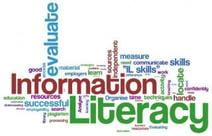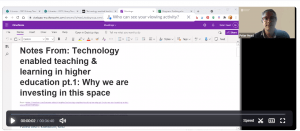On Friday 20.08.2021, I spoke and got our Study Support and Library Team to discuss Supporting international students in an online environment by Dr Amanda Müller from Flinders University.
This article was chosen since it was related to TEQSA and I wanted to check how far our Team has gone in relation to the requirements made by them. It seemed as though most of the staff agreed that we were on the right track, apart from a couple of points that were raised and discussed:
One member of staff, Peter Head, responded to my comment on “the students may need to be prompted to contribute, may be surprised if you ask for their opinion, and will need more time for a verbal reply”. He gave us some ways that he does that, by asking student questions very early and just shortly after he has presented something: He puts something on the Chat box and expects both typed and verbal answers. This is something I could consider doing more for our ASDP and ASC workshops. I managed to link that to the little time we had and how that is linked to “expect to cover less content in live online classes” and “have pre-reading activities and questions before the class”.
However, the fact that there is little time to present the ASCs, in particular, means it would make it difficult to cover a lot of material. Other members of staff agreed with this point.
I asked Lorna Clark if there was much feedback from the ASDP workshops, and she came up with the following:
- Most of the comments were favourable.
- Some students wanted the explanations delivered more slowly.
- Some students wanted more examples given to explain things in more detail.
- One student wanted us to share what problems other students have.
This last point led to some speculation as to what this last point actually meant – whether this happens in other countries, and is therefore a cultural difference, or why they wanted to know that information?
Seham brought up the issue of Etiquette when sending emails to staff at CSU and Madelle reiterated that the Course Coordinators and others presenting should send us their slides earlier in Orientation week, so that we know what the contents are and who to refer the students to, when they come to us with questions. A consensus was reached when Madelle suggested that a couple of points for etiquette should be added to the slides for Orientation Week students.
There was a general discussion that followed about Orientation Week and that perhaps during that time, it was necessary to show students how to access the different parts of their courses online: Madelle and Lorna and some others suggested that it should be part of the Orientation, as some of us are asked, especially by overseas students, to show them where to go. There was a general consensus that that should be looked at, as an area of possible weakness, and I pointed out that we had that last year, in 202060, when the first part of the Orientation session was presented.
Some staff suggested that the Course Coordinators or other people presenting should send us the PP slides early on, so that we know what was on them, and we all agreed with that, as none of the people at the meeting that day knew definitely what was being presented by other staff during Orientation Week, whereas last year, we were sent that information. Lorna pointed out that some information was available now on the iLearn site, and we speculated on when that information was posted on the site and who was the person to contact, though the information from CSU now stated who to contact.
In all, we all agreed that we were doing most of the things in the TEQSA requirements, but that some areas may need to be modified somewhat, to make it more in line with what the requirements are. As when I asked Lorna for comments on the Essential Skills and the lead-in before that on iLearn, that guides students to the relevant authority to answer their questions, she confirmed that it does that. The problem may be that students do not know that it exists, especially if they have not attended Orientation week or the ASDPs workshops and that was the major issue we may still need to resolve.
Altogether, it was a relatively communicative and inclusive session, which lasted about 45 minutes.
The recording of the discussion is here: https://charlessturt.zoom.us/rec/share/rwqdtNdciMHhneyIeaRJarXoEEyeI5WXjIEfB_5B5v90a8oM0vM0MBzlBDTQwXsm.wKvqBFcTsn4Zdmcq
The article used: supporting-international-students-online-environment.pdf

